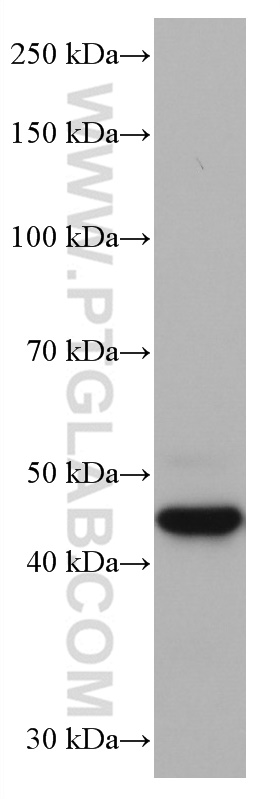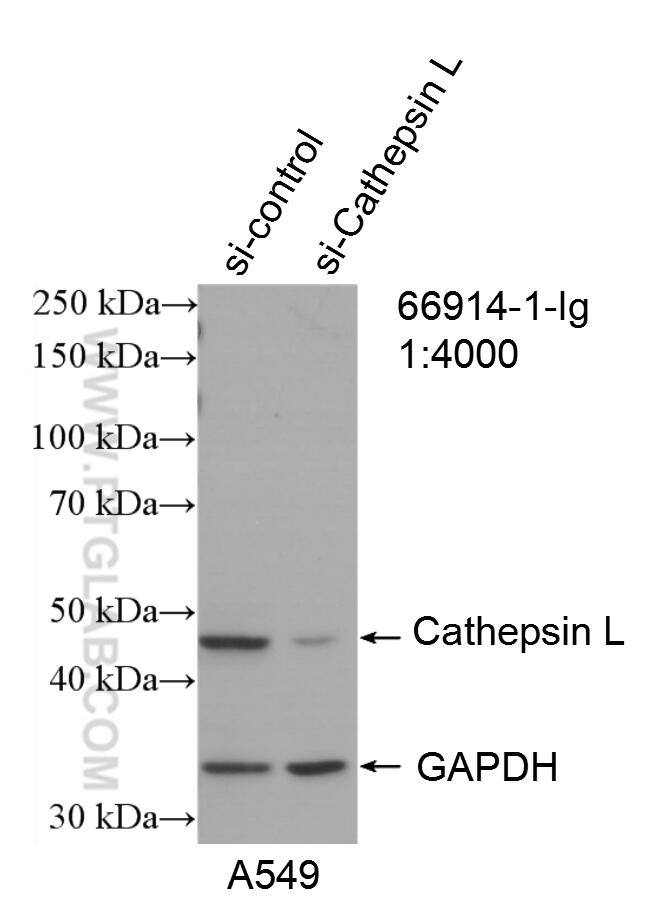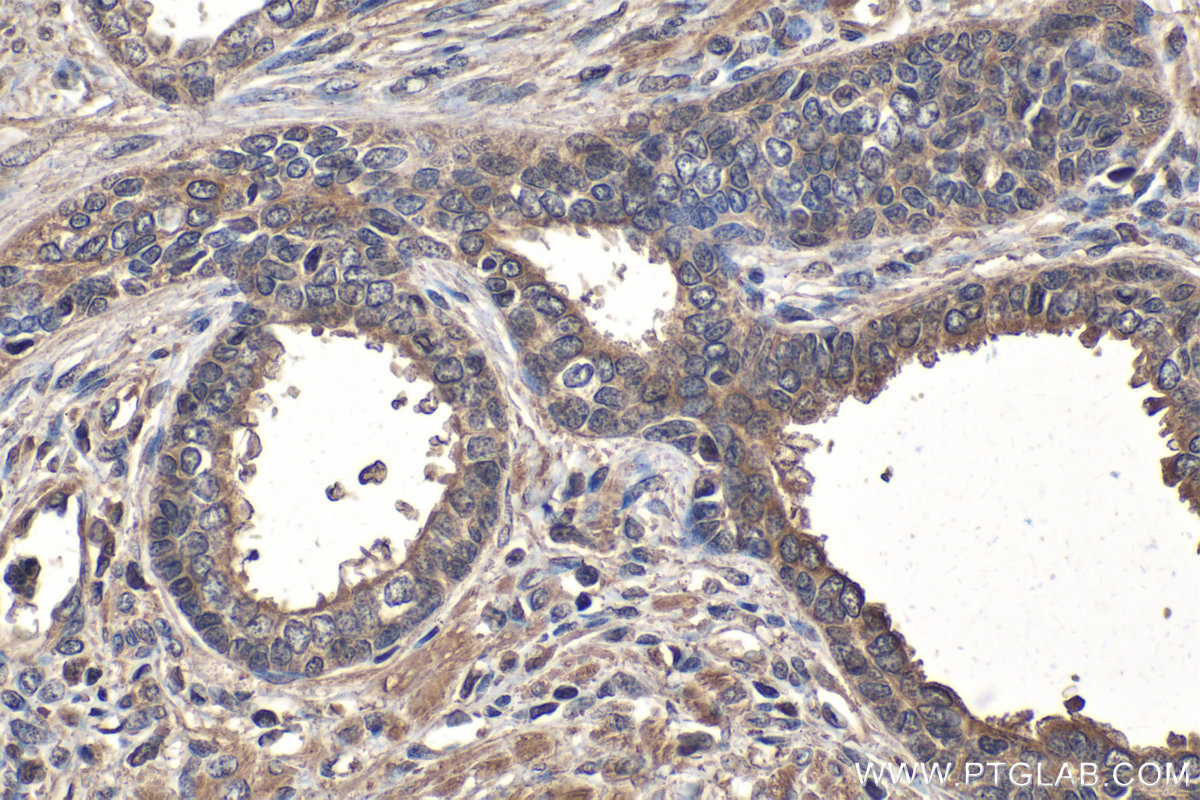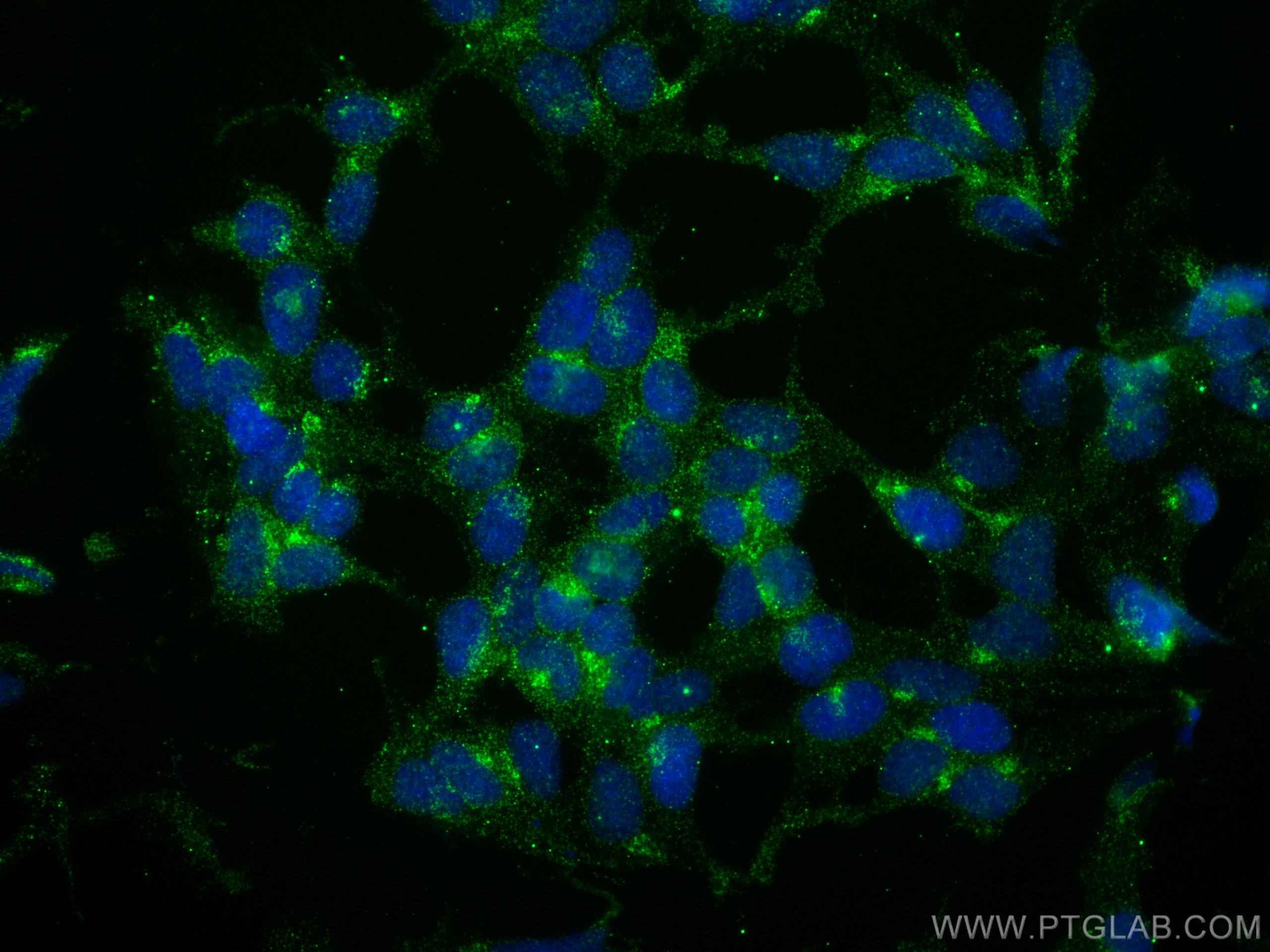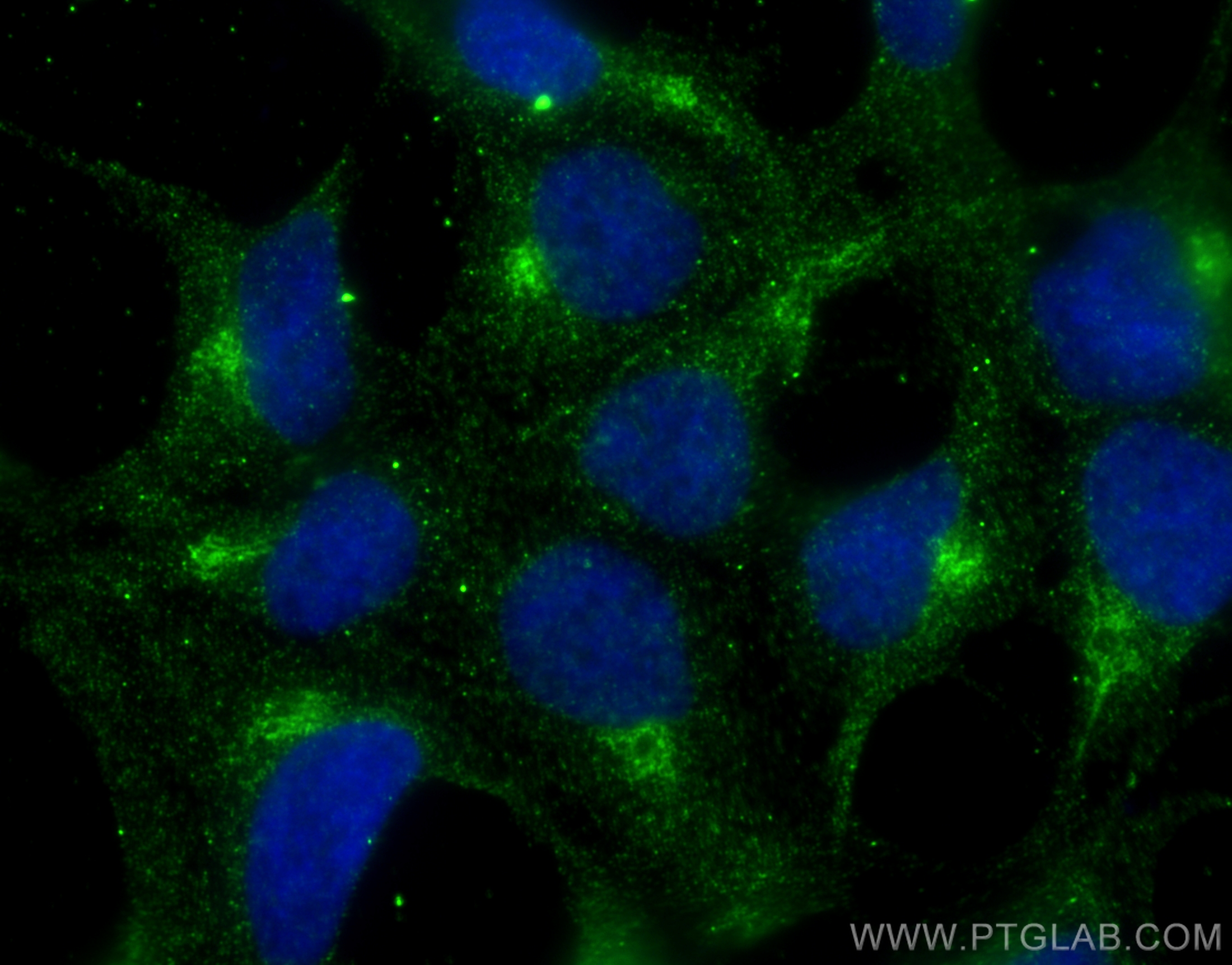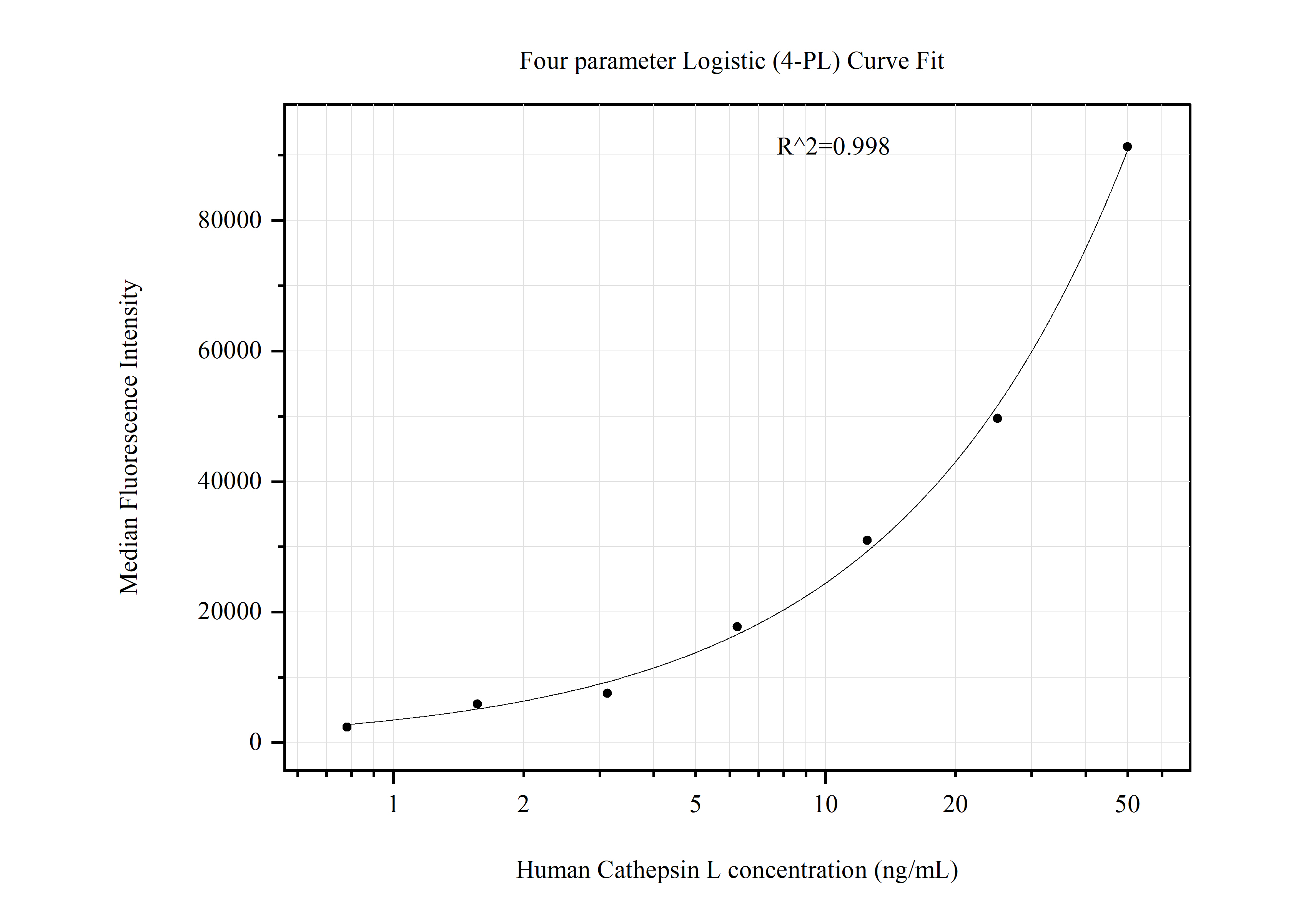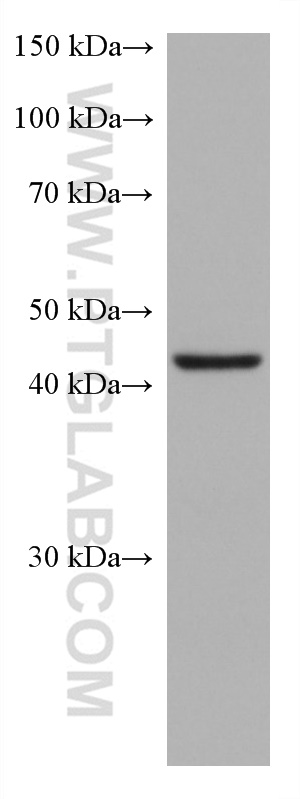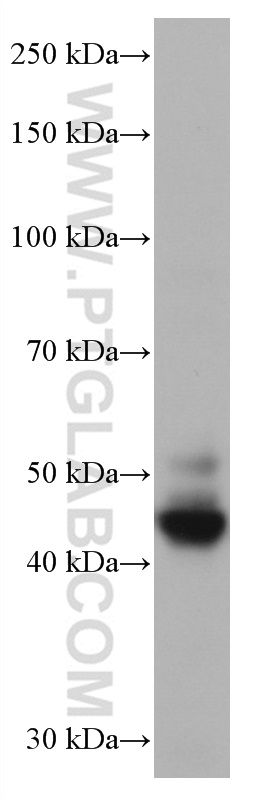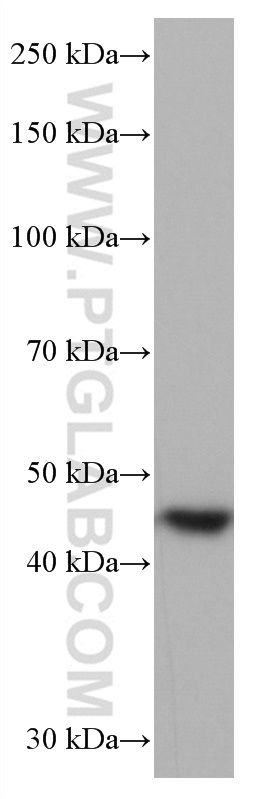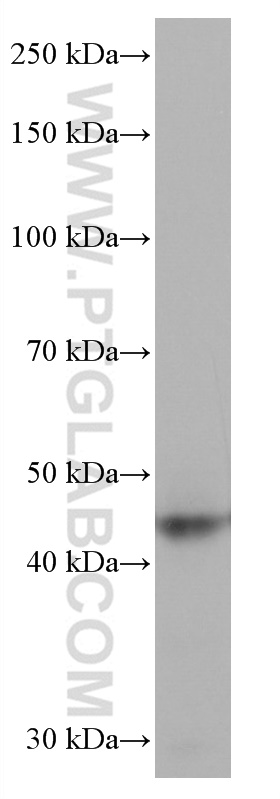验证数据展示
产品信息
66914-1-PBS targets Cathepsin L as part of a matched antibody pair:
MP51216-1: 66914-2-PBS capture and 66914-1-PBS detection (validated in Cytometric bead array)
Unconjugated mouse monoclonal antibody pair in PBS only (BSA and azide free) storage buffer at a concentration of 1 mg/mL, ready for conjugation.
This conjugation ready format makes antibodies ideal for use in many applications including: ELISAs, multiplex assays requiring matched pairs, mass cytometry, and multiplex imaging applications.Antibody use should be optimized by the end user for each application and assay.
| 经测试应用 | WB, IHC, IF/ICC, Cytometric bead array, Indirect ELISA Application Description |
| 经测试反应性 | human |
| 免疫原 | Cathepsin L fusion protein Ag27951 种属同源性预测 |
| 宿主/亚型 | Mouse / IgG2b |
| 抗体类别 | Monoclonal |
| 产品类型 | Antibody |
| 全称 | cathepsin L1 |
| 别名 | CTSL1, 1A12G8, Cathepsin L heavy chain, Cathepsin L light chain, cathepsin L1 |
| 计算分子量 | 38 kDa |
| 观测分子量 | 43 kDa |
| GenBank蛋白编号 | BC012612 |
| 基因名称 | Cathepsin L |
| Gene ID (NCBI) | 1514 |
| RRID | AB_2882241 |
| 偶联类型 | Unconjugated |
| 形式 | Liquid |
| 纯化方式 | Protein A purification |
| UNIPROT ID | P07711 |
| 储存缓冲液 | PBS only , pH 7.3 |
| 储存条件 | Store at -80°C. The product is shipped with ice packs. Upon receipt, store it immediately at -80°C |
背景介绍
CTSL1(Cathepsin L1) is also named as CTSL and MEP, belongs to the peptidase C1 family. It is a lysosomal proteinase whose expression is also up-regulated in the skeletal muscle during starvation(PMID:20088826). It plays an intracellular role in normal intestinal epithelial polarization and initiation of neoplasia(PMID:17622569). CTSL1 also improves cardiac function and inhibits cardiac hypertrophy, inflammation, and fibrosis through blocking AKT/GSK3B signaling(PMID:19096818). The full length protein is 38 kDa with a signal peptide, two propeptide and a glycosylation site. It has been detected the 36 kDa, 39 kDa, 29 kDa and 21 kDa in rat gastrocnemius muscle. These forms of cathepsin L could either be attributed to differences in glycosylation or to partial processing of the proenzyme. (PMID:11696001)
